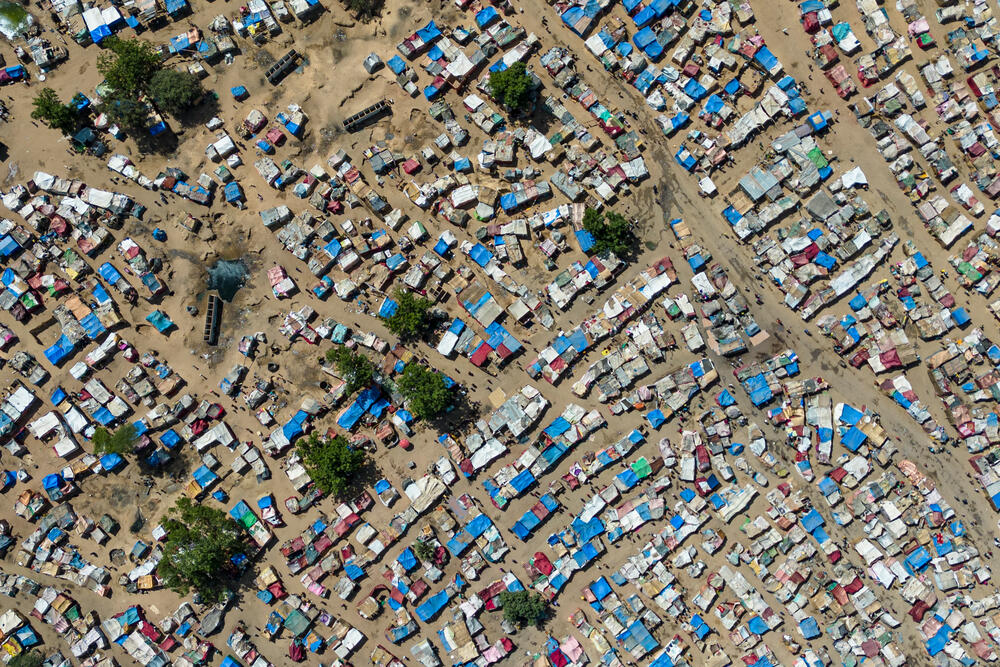Measles: One million children vaccinated by MSF in Chad
Médecins Sans Frontières / Doctors Without Borders (MSF) teams in Chad have protected close to one million children against measles.
The mass vaccination campaign, which took place in January, reached a total of 955,673 children in the capital N’Djamena – all aged between four months and 16 years old.
Measles is considered the most contagious disease in the world with a ‘reproduction number’ of up to 18. Sadly, it is also a leading cause of death among children and often hits those under five years old the hardest.
The virus causes an acute infection of the respiratory system and is characterised by a skin rash of small red dots. However, there is no specific treatment for the disease and vaccination is the most effective medical tool against illness.
The fallout of flooding
Epidemics of measles are recurrent in Chad. Here, it is also a leading killer of young children. However, vaccination coverage is weak countrywide and many families, even those in urban areas, struggle to access paediatric care if their child falls sick.
In late 2022, Chad experienced unprecedented flooding after heavy rainfall, forcing large numbers of people from their homes. In N'Djamena, the flooding of the Chari River displaced some 255,000 people between October and December 2022.
Many sought refuge in around 20 displacement camps in the capital where conditions are often overcrowded and unhygienic. A dangerous situation with an infectious disease.
Never miss an update
Get the latest news on outbreaks and disease with our email newsletter, Frontline.
You'll also receive our best stories, critical updates and unique ways to get involved.
“A lack of access to clean drinking water and hygiene, as well as overcrowding, increases people’s vulnerability,” says Dr Jean Patrick Oumaba, MSF medical coordinator in N’Djamena.
“Our initial aim to prevent outbreaks of disease by vaccinating children in the camps rapidly turned into a fully-fledged mass vaccination campaign in support of the Ministry of Public Health and UNICEF.”
Treatment and awareness
As well as protecting children from the disease through vaccinations, MSF teams have provided medical care to 396 children with measles symptoms.
At the same time, we referred 52 children in a critical condition to a dedicated measles unit at Gozator Hospital, which is also supported by MSF.
In numbers: Our work on measles
147,985
PEOPLE TREATED FOR MEASLES BY MSF IN 2023
3,295,700
VACCINATIONS AGAINST MEASLES BY MSF IN RESPONSE TO AN OUTBREAK IN 2023
95%
OF MEASLES DEATHS OCCUR IN LOW-INCOME COUNTRIES
To maximise the total number of people reached and educate them about the disease, its symptoms, and the importance of protection through vaccination, the backbone of the campaign has been ‘healthcare promotion’.
These critical activities were carried out by specialist MSF health promoters who worked with various local associations, community leaders, international organisations, the government and the media.
However, despite the impact of the campaign, the healthcare stakes in Chad remain high and much more needs to be done to curb future disease outbreaks effectively.
In the long run, limiting the resurgence of measles in Chad can only be achieved by increasing vaccination coverage everywhere.
MSF and measles
Measles is one of the leading causes of death among young children.
It is a highly contagious viral disease. A safe and effective vaccine has existed since the 1960s but outbreaks still occur due to ineffective or insufficient immunisation programmes.
